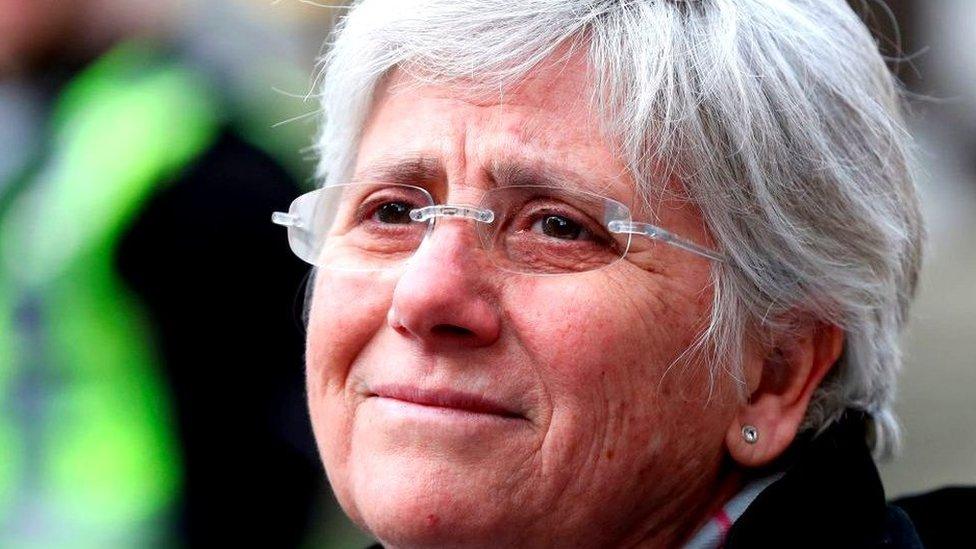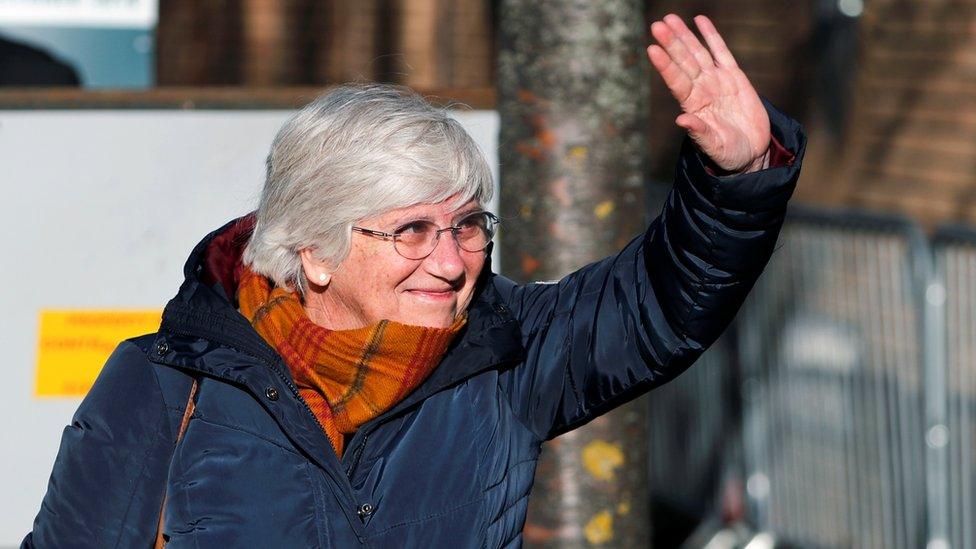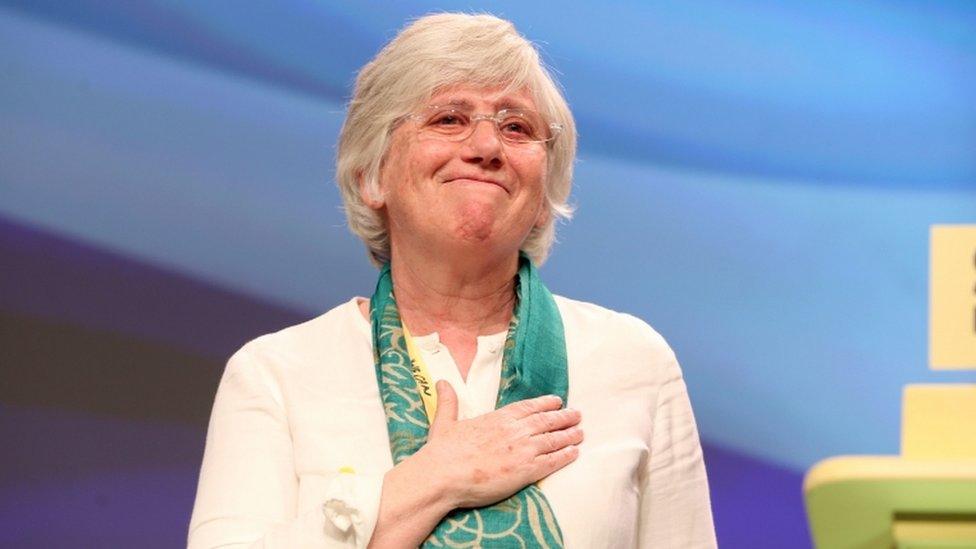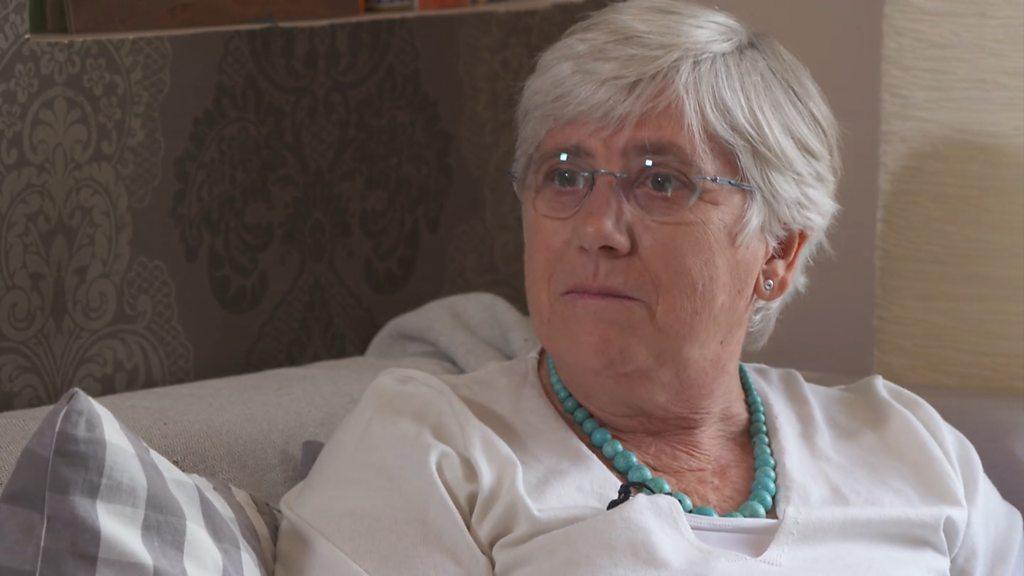Clara Ponsati: Spanish PM to be called as witness
- Published

The charges relate to Catalonia's independence referendum in October 2017
The prime minister and former prime minister of Spain will be called to give evidence in the case of an academic facing extradition to Spain.
Clara Ponsati faces a charge of sedition over her role in Catalonia's unsanctioned 2017 independence referendum.
The St Andrews University professor, who was granted bail in Edinburgh last month, denies all wrongdoing.
The witness plans were revealed during a hearing at Edinburgh Sheriff Court.
Prof Ponsati's lawyer, Gordon Jackson QC, said they would call senior figures from Spain's judiciary and political world to give evidence.
They include Prime Minister Pedro Sanchez, former prime minister Mariano Rajoy and former foreign minister Jose Manuel Garcia-Margallo.
Mr Jackson said an issue to be considered was whether or not Ms Ponsati would face a fair trial in Spain.
He told the procedural hearing in Edinburgh: "There are people in jail in Spain in related cases.
"There is certainly going to be focus on the independence of the judiciary and the ability to get any fair trial for this woman if she goes back to Spain."
'Surreal'
Prof Ponsati faces up to 15 years in prison if convicted, with nine other Catalan officials given jail sentences of between nine and 13 years for the same offence earlier this year.
She faces a single charge of sedition, which relates to the organising of the referendum in her role as education minister.
The hearing took place before Sheriff Nigel Ross, who set a date for a further procedural hearing at the court on 23 January.
A full hearing is expected to take place later next year.
Speaking outside the court, Prof Ponsati's solicitor, Aamar Anwar, said his client found it "surreal" that she was accused of treason.
He added: "A true democracy guarantees the absolute freedom of expression and politicians must be able to speak freely, independently and without fear of any form of prosecution or punishment."
Protests
The charges faced by Prof Ponsati relate to Catalonia's October 2017 independence referendum - which the Spanish state deemed illegal and refused to sanction.
Prof Ponsati was education minister in the Catalan government at the time.
The latest European warrant was issued after a previous warrant was withdrawn last summer.
Prosecutors in Spain argue that 2017's unilateral declaration of independence was an attack on the Spanish state and accused some of those involved of a serious act of rebellion.
They also said separatist leaders had misused public funds while organising the 2017 referendum.
- Published14 November 2019

- Published6 November 2019

- Published5 November 2019

- Published5 November 2019
